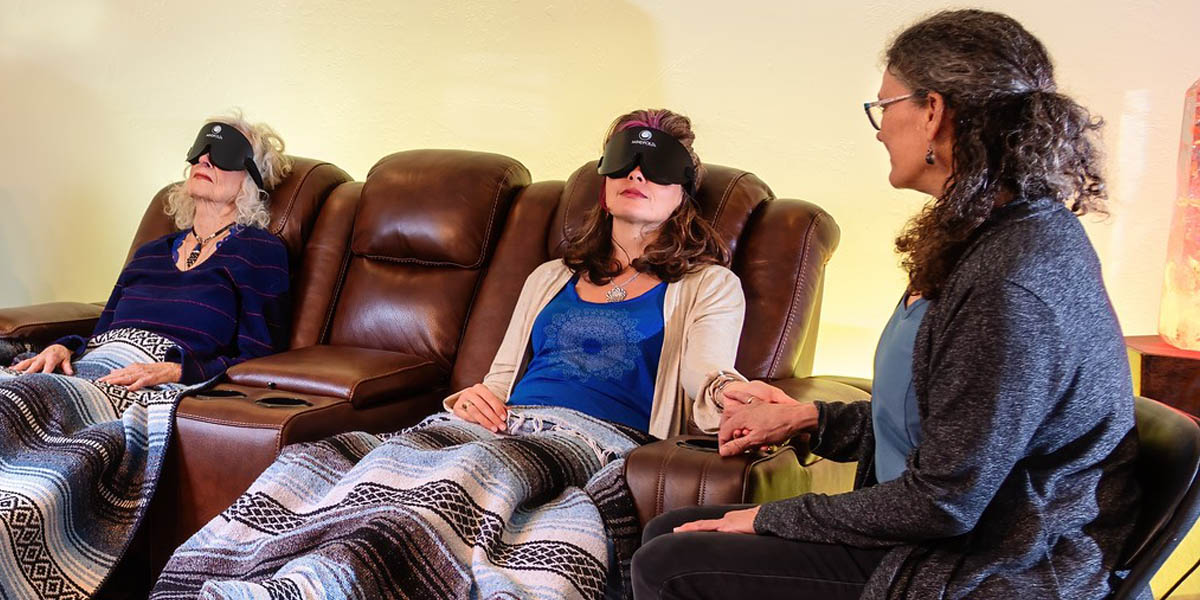Since the 1960s, ketamine has been recognized throughout the healthcare industry, and used around the world, as one of the safest anesthetics. Since then, the international medical community has extensively researched ketamine-assisted therapy (KAT) as a treatment option for a range of mental health and behavioral conditions, including alcohol and substance use disorders.
Ketamine is classified as a Schedule III compound by the Drug Enforcement Administration (DEA). This means that today, ketamine is the only psychedelic substance that physicians can legally administer and prescribe.
There are many paths to healing and each person’s individual journey is unique. Understanding the way addiction affects your body, mind, emotions, and spirit might help you see how treating alcohol and substance use disorders with ketamine therapy could be an effective treatment option for you. Keep reading to learn more.
Treating the Source of Addiction with Ketamine Therapy
Alcohol and substance dependencies or abuse are the results of trauma. Addiction is a symptom of your pain, not the cause of it. At The Sanctuary, we believe the first step towards living a recovered life is to begin healing from your trauma, whether past or present.
Ketamine’s healing potential lies in its ability to help people detach from their oftentimes consuming negative emotions. This allows them to view their addictions from a different perspective. After experiencing KAT, many people find the mental clarity to process their traumas. Then they can begin addressing the root cause of their alcohol or substance use disorder.
Many international scientific studies have tested and measured the effects of ketamine therapy in treating alcohol and substance use disorders. One study found that a year after KAT, 60 out of 86 patients (69.8%) were still abstinent from alcohol. On the other hand, of the 100 participants in the control group, who didn’t receive KAT, only 24 people (24%) maintained their sobriety. The researchers concluded that data from these results prove that ketamine-assisted therapy increases the efficacy of conventional alcoholism treatment.
In order to overcome our addictions, healing must happen not just physically but also mentally, spiritually and emotionally. KAT has helped many people achieve healing on these deeper levels.
Breaking the Cycle of Alcohol or Substance Addiction
Neural pathways in our brains associated with behavior are reinforced when we repeat behaviors, harmful or otherwise. Sometimes these neural pathways become so strong that our brains and bodies then find certain behaviors easier to perform. And that’s when we develop habits.
When you have an alcohol or substance use disorder, you become stuck in a mental and physical loop of negative thought-behavior patterns. That’s why addiction can become a repeating, seemingly never-ending cycle. It can be challenging to break this cycle, but it’s not impossible.
Using Ketamine Treatments to Rewire Our Brains
Luckily, our brains have the amazing ability to change, both physically and functionally. This ability is called neuroplasticity. Neuroplasticity essentially means that we all have the ability to “rewire” our brains. That’s where ketamine comes in.
Ketamine-assisted therapy, when used correctly, has the potential to catalyze individual transformation. Some studies show that ketamine can positively impact neuroplasticity, especially in conditions that are particularly mentally challenging like depression, PTSD, and addiction. Researchers believe this is possible because of ketamine’s unique potential to create a “shift in consciousness” which allows these conditions “to be felt in their origins and subsequently relaxed and re-contextualized.”
A change in perspective and an increase in self-compassion can help your brain make new connections, positively affecting its neuroplasticity. This in turn helps you change your relationship with, and ultimately heal from, your addiction.
Finding Emotional and Spiritual Freedom through Ketamine Therapy
Ketamine-assisted therapy can also help you access and reevaluate your spiritual belief system and your worldviews. This can lead to healing on the emotional and spiritual planes.
During one study, ketamine therapy positively affected the internal emotions of patients with alcohol use disorder. Because they were “more sure about their ability to control and manage different situations in their life,” these people accepted more responsibility for their life and their futures. Another study supports this same conclusion, finding that after ketamine therapy “patients became more sure of themselves, their possibilities, their future, less anxious and neurotic and more emotionally open.”
Positive emotional changes can also contribute to an increase in the level of spiritual development, which KAT also positively affects. The same study as above found that patients with alcohol use disorder also had an increase in spiritual development, as measured on the Spirituality Scale. This was “comparable with the increase induced in healthy volunteers by a special course of meditation.”
The Sanctuary’s Ketamine Therapy for Alcohol and Substance Use Disorder
Overcoming an alcohol or substance use disorder may be difficult, but it’s far from impossible. At The Sanctuary, we have developed a science-based, holistic ketamine-assisted treatment program to help you in your healing journey, if needed. A life free from the pain of trauma and unshackled from the harmful cycle of addiction is within your reach.
Contact us to discover more about The Sanctuary’s transformational ketamine-assisted treatment program.
Dr. Forrest is a licensed Naturopathic Physician specializing in retreat-style holistic medicine, natural detoxification and cleansing, mind/body medicine, and regenerative medicine. Dr. Forrest brings to his work a sense of humility, respect, and compassion that is too often absent in the sterile, rigid world of modern medicine. He is deeply honored and grateful to be continuing this work as part of the community and healing that is taking place at the Sanctuary. [email protected]


